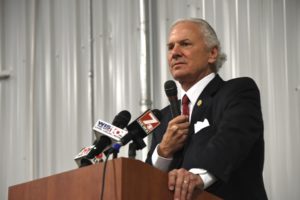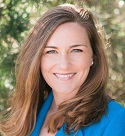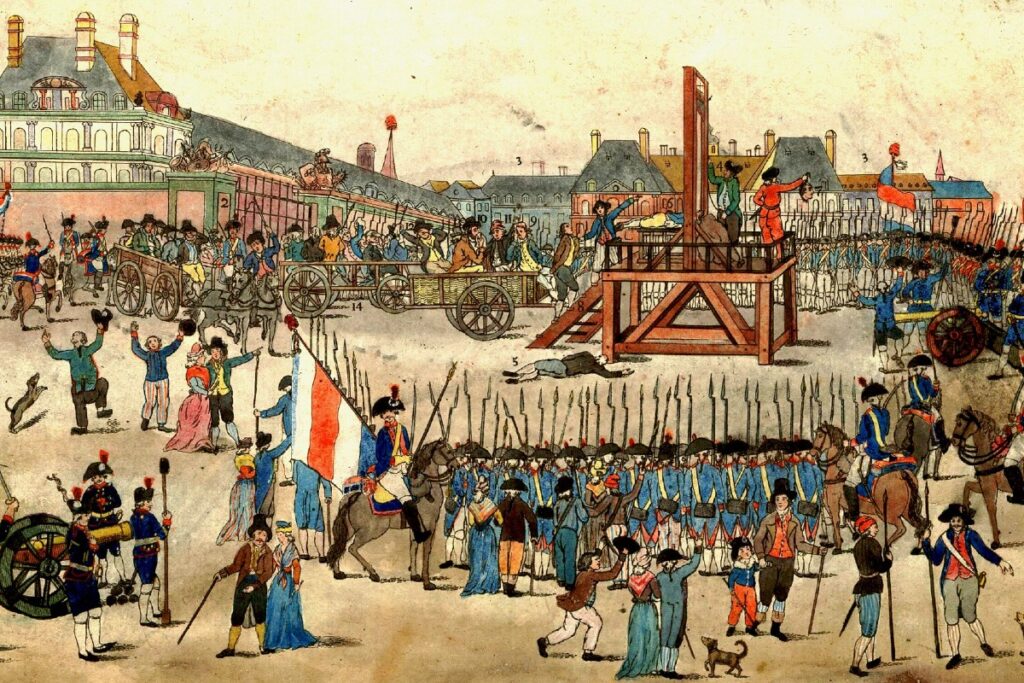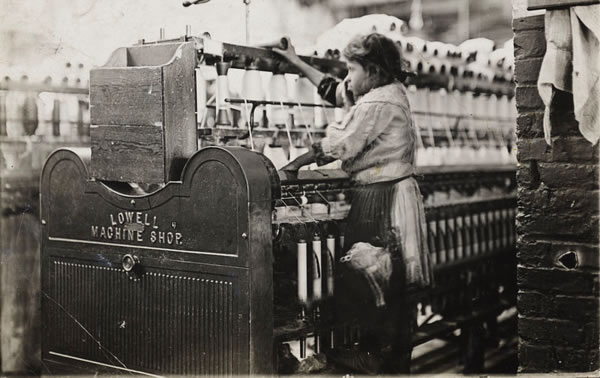STATEHOUSE REPORT | ISSUE 23.35 | Aug. 303, 2024
BIG STORY: Controversy swirls around new state education subsidies
MORE NEWS: New wall to honor state’s Revolutionary War patriots
LOWCOUNTRY, Ariail: Paddling
COMMENTARY, Brack: Lock ‘em up and throw away the key
SPOTLIGHT: S.C. Institute for Independent Journalism
ANOTHER VIEW: The significance of Labor Day 2024
MYSTERY PHOTO: Statue and park
FEEDBACK: On that sales tax holiday
Controversy swirls around new education subsidies

By Jack O’Toole, Capitol bureau | A new pilot program from the S.C. Department of Education (SCDE) is sending nearly 3,000 South Carolina students to private schools at taxpayer expense this fall as two critical questions remain unanswered: Is it legal, and is it a good idea?
The program, authorized by the S.C. General Assembly in 2023, provides parents with up to $6,000 in a special savings account to pay for private school tuition and a wide range of related expenses, including textbooks, computers, private tutoring and transportation costs. In the first year, participation is limited to families making 200% of the federal poverty limit, or about $60,000. That number rises to 300% and 400% in years two and three.
Here’s what we know about the students who are participating this year, according to demographic data provided to the City Paper by SCDE:
- Grade levels: 58% of recipients are in elementary school, 22% middle school, 20% high school.
- Ethnicity: 49% Black, 36% White, 7% Hispanic, 1% Asian.
- Sex: 52% male, 48% female.
Supporters say the program is essential to improving the state’s historically poor education system.
“The point of our schools is to have more educated students who have a greater chance of succeeding in life,” said Sam Aaron, an analyst with the S.C. Policy Council, which supports the program. “And if the current school isn’t serving them, they should have this option to find a school that does serve them.”
But opponents describe the program as warmed-over vouchers that subsidize private school tuition – the equivalent of handing parachutes to a handful of children while leaving the rest to go down with the plane.
“For every kid that might go on under this program to get what’s perceived to be a better education in a private school, there’ll be 10 to 15 that are stuck in schools that are lagging behind,” said Calhoun County Democratic Rep. Russell Ott, who’s currently running for state Senate. “So let’s roll up our sleeves and fix the public schools.”
Is the program legal?
This isn’t the first time South Carolina has tried to implement a private school scholarship, or voucher, program. (Supporters typically prefer the terms “school choice” and “scholarships,” which poll well, while opponents prefer “privatization” and “vouchers,” which don’t.)

“Private schools … provide parents the ability to choose the type of education environment and instruction they feel best suits their child’s unique needs,” S.C. Gov. Henry McMaster said in July 2020, as he announced his decision to redirect $32 million in federal Covid relief assistance into a new private school grant program for families making up to 300% of the federal poverty level.
But less than four months later, the S.C. Supreme Court struck down McMaster’s program in a unanimous decision, finding that it violated the state constitution’s prohibition against “direct aid to religious or other private educational institutions.”
“The direct payment of the funds to the private schools is contrary to the framers’ intention not to grant public funds ‘outrightly’ to such institutions,” wrote then-Chief Justice Don Beatty.
Proponents of the current program believe it will ultimately pass constitutional muster because it awards money to parents rather than providing it directly to the private schools.
But opponents like Sherry East, president of the S.C. Education Association which is challenging the program in court, argue that that’s a distinction without a difference.

“Cut and dried, it’s unconstitutional,” East told the City Paper. “We’re not opposed to private schools – I don’t fault any parent for wanting to do what they think is right for their child – but it’s not fair, or legal, to ask taxpayers to do that.”
But as East is quick to point out, her concerns run deeper than the law.
“In the public schools, we teach everybody,” she said. “If we have this extra money for education, why can’t we put that toward the [historically underfunded] Corridor of Shame or school districts that are struggling with facilities? There’s a real need for that money.”
How much money is East talking about? Under current law, the pilot will cost state taxpayers $30 million this year, with the price tag rising to $90 million by year three of the program.
What does the research say about similar programs?
As is often the case in divisive public policy matters, the research on state scholarship and voucher programs is both thinner and more contradictory than either side would suggest.
On the positive side, most studies over time have shown improved parent satisfaction, higher graduation rates and stronger test scores among program participants.
However, as the Brookings Institution noted in a 2023 report, more recent studies are less encouraging.
“The last decade of achievement studies have shown negative voucher impacts, with more mixed or inconclusive results on attainment,” Brookings concluded after reviewing the research.
Specifically, Brookings points to studies showing mixed or negative academic impacts from programs in Louisiana and Indiana, as well as the emergence of “pop up” schools that exist only to profit from the newly-available state funds.
Overall, Brookings called the evidence “mixed,” with some studies showing “large positive impacts,” though “the larger the program, the worse the results tend to be.”
A wait-and-see approach
To the surprise of many longtime Statehouse observers, Republicans in the House of Representatives pushed through a bill earlier this year to expand the new program to all students at all income levels immediately, before the pilot had even begun.
The bill died without a vote in the Senate, where members like Beaufort Republican Sen. Tom Davis wanted to see the pilot results first.
“I always believe that you get a better product at a lower cost when there’s competition among providers and the consumer has choices,” Davis told the City Paper. “But when you take theory and translate it into practice, you’ve got to carefully measure outcomes and make sure your assumption is correct.”
Moreover, Davis argues, the program should only exist in the context of a larger effort to improve education by supporting public school teachers.
“The most important thing we can do is make sure that more of the money we appropriate for education goes straight into teacher salaries, [because] there’s nothing more important than a quality teacher in the classroom,” Davis said. “And second, teachers have to be sovereign in the classroom. They have to be able to impose discipline and be respected for their skills.”

In the House, Charleston Democrat Spencer Wetmore agrees that teachers need more support and that the current pilot program with income limits is better than any kind of immediate expansion.
But she continues to believe that “public dollars should be used for public education.”
“When there’s a problem with public schools, we should fight to fix them, not divert money from the system,” Wetmore said.
- Have a comment? Send to: feedback@statehousereport.com.
New wall to honor state’s Revolutionary War patriots

Staff reports | Daniel Island resident Kenneth Scarlett will lead a new task force to erect a Patriots Memorial Wall at Liberty Square in Charleston to honor the estimated 7,500 men and women in South Carolina who died during the Revolutionary War.

Scarlett, a member of the S.C. American Revolution Sestercentennial Commission (SC250), said he wants the wall to be a national wall similar to the Vietnam Veterans Wall in Washington, D.C., and “serve as the glue of patriotism that unites us as Americans.” If all goes well, it will be unveiled July 4, 2026, when America observes its 250th anniversary.
The wall will list the names of men and women of all races, nationalities and colonies who supported the cause of American patriotism and died in South Carolina from 1775 to 1783. The wall will be inscribed: “Freedom is the light for which many have died in darkness so we may enjoy the fruits of liberty today. Remember and honor their sacrifice.”
The SC 250 Commission recently met in Spartanburg and agreed to spend $12,000 for a design and construction process for the wall that could cost $1 million in public and private contributions.
Scarlett told the commissioners the wall will stand on a significant site in South Carolina’s colonial history at Liberty Square, part of the former site of Gadsden’s Wharf where the last British troops occupied Charlestown before withdrawing on Dec. 14, 1782.
“We want to have full community participation,” Scarlett said. The task force, which will be made up of volunteers, will “take all the steps [toward] community involvement,” he added. “We want this to be a South Carolina project for everyone.”
– Herb Frazier
In other recent news
![]() Lawsuit seeks to block S.C. law limiting transgender medical care options. A group of South Carolina transgender adults, children, and their parents are suing to block a state law meant to restrict transgender medical care for youth.
Lawsuit seeks to block S.C. law limiting transgender medical care options. A group of South Carolina transgender adults, children, and their parents are suing to block a state law meant to restrict transgender medical care for youth.
S.C. spending $30M to tackle nursing shortage. By 2036, the Palmetto State could have the seventh-largest shortage of registered nurses in the nation — with a predicted 13,600 vacancies, leaving more than 1 in 5 positions unfilled — due to a retiring workforce and already low staffing levels, according to a March report by the federal Health Resources and Services Administration.
Boar’s Head listeria outbreak possibly linked to two Lowcountry deaths. The South Carolina Department of Public Health is urging residents to avoid recalled Boar’s Head deli meat as a national listeria outbreak may have contributed to the deaths of two Lowcountry citizens.
Clemson warns S.C. of rare virus threats. Mosquitoes are in abundance following Tropical Storm Debby. Reports from across the state indicate an incoming uptick in aerial mosquito pesticide treatment in an attempt to slow down reproduction. In Horry County, one case of West Nile virus – spread by mosquitoes – has been reported.
Smalls monument moves forward. Plans to erect South Carolina’s first Statehouse monument honoring an individual Black citizen steamed forward this week with a ceremonial bill signing by Gov. Henry McMaster and the first meeting of the Robert Smalls Memorial Commission on August 28.
Child safety advocates push for stronger S.C. child passenger laws. Child passenger safety advocates are pushing for South Carolina to toughen up their laws after one too many accidents have happened in the state.
S.C. Supreme Court to decide minimum time between executions. The state Supreme Court won’t allow another execution in the state until it determines a minimum amount of time between sending inmates to the death chamber, while S.C. Attorney General Alan Wilson argues that any such waiting periods should be brief.
Paddling

Nationally award-winning cartoonist Robert Ariail always has an interesting take. This week, he takes on flooding in the Lowcountry.
What do you think … love it or hate it? Did he go too far, or not far enough? Send your thoughts to feedback@statehousereport.com.
Lock ‘em up and throw away the key

By Andy Brack | Now that the state of South Carolina has three court-approved methods that a condemned convict can choose from to meet his maker, it’s curious lawmakers didn’t consider a tried-and-true method of execution so gruesome that it should be certain to have a deterrent effect: the guillotine.
 South Carolina is scheduled to get back into the execution business Sept. 20 when a 46-year-old man, Freddie Eugene Owens, is set to die for the 1997 death and armed robbery of a Greenville store clerk. If there’s not some kind of delay in a state that hasn’t had an execution in 13 years, he’ll have a choice of dying by electrocution, lethal injection or firing squad, a new option approved by lawmakers in the last couple of years.
South Carolina is scheduled to get back into the execution business Sept. 20 when a 46-year-old man, Freddie Eugene Owens, is set to die for the 1997 death and armed robbery of a Greenville store clerk. If there’s not some kind of delay in a state that hasn’t had an execution in 13 years, he’ll have a choice of dying by electrocution, lethal injection or firing squad, a new option approved by lawmakers in the last couple of years.
We’ve never been clear exactly why there needed to be three choices since the end result is the same – and it seems kind of counterintuitive for apologists to worry about pain in executions since many people want to see those put to death to suffer for their crimes.
South Carolina’s execution process faced a slowdown when lethal injection was questioned a while back for being cruel and unusual punishment that caused pain and undue suffering. And then companies that supplied the drugs said they were out of them, but that really meant they didn’t want people to know which company supplied the drug. So the legislature passed a law to keep their identities secret. And along the way, lawmakers decided to add another method for inmates to choose from for good measure – in case the lethal injection reboot didn’t work.
Of course, who’s to say electrocutions haven’t been botched or that firing squads are pain-free?
Which brings us back to the guillotine, last used officially in 1977 when the French executed a Tunisian for a particularly brutal death in Marseille in 1974. Used during the Reign of Terror in the French Revolution, death by guillotine has awed and terrified the public for generations. According to a paper questioning whether death by guillotine was “the most gentle of lethal methods,” researchers concluded decapitation caused “nearly instant” loss of consciousness in humans and rats but “it is possible that the truth will never be fully known.”
So if you have reached this part of this commentary, you might be figuring out that discussing a return to the guillotine is a facetious suggestion to amplify the brutality of executing people in a state where boatloads of people go to church and hear how they should “love thy neighbor.”
State-directed executions should become a permanent thing of the past. Not only are they brutal, discriminatory and political, but they put the blood of the state on the hands of every citizen of the Palmetto State.
According to Amnesty International, almost 200 people sent to death row in the United States “have been later exonerated or released from death row on grounds of innocence. Others have been executed despite serious doubts about their guilt.”
The organization also claims execution as a deterrent “has been repeatedly discredited, and there is no evidence that the death penalty is any more effective in reducing crime than life imprisonment.”
Bottom line: The death penalty is an Old Testament punishment in an era when the majority of people subscribe to New Testament principles.
Lock ‘em up and throw away the key, but let’s get rid of executions and the blood on everyone’s hands.
- Have a comment? Send to: feedback@statehousereport.com.
S.C. Institute for Independent Journalism
 Statehouse Report is brought to you for free thanks to underwriters like the South Carolina Institute for Independent Journalism, which supports the development and production of independent and nonprofit news in South Carolina to promote democratic ideals.
Statehouse Report is brought to you for free thanks to underwriters like the South Carolina Institute for Independent Journalism, which supports the development and production of independent and nonprofit news in South Carolina to promote democratic ideals.
SCIIJ achieves its mission by providing financial and organizational support to community publications; operating civic engagement initiatives; training promising journalists; and producing bold independent journalism.
The significance of Labor Day 2024

By George Hopkins | September 2 is Labor Day, the day when our nation honors the working women and men who build this country and make it prosperous.

It is also the time to remember the achievements of the organized labor movement in the United States. Unionized workers correctly refer to themselves as “the folks who brought you the weekend.”
Many basic American rights and benefits that are often taken for granted — the 8-hour work day and a 5-day work week — were not willingly handed to workers by benevolent employers. Workplace changes came through perseverance and struggle. Gaining legal recognition of workers’ rights to a voice in management and working conditions required the hard work and dedication of thousands of union men and women. They marched, protested, went on strike, boycotted, organized, voted, lobbied, sacrificed and were injured or killed to win these rights.
Today, union workers enjoy higher pay, superior benefit packages [including health insurance] and better pensions and retirement programs than nonunion workers. Yet unions today represent less than 7% of the private sector workforce. In South Carolina, it’s less than 2%, the lowest in the nation.
This year, Labor Day is a call to action to defend the civil and economic rights of all working people and to oppose the repeal of such rights for public sector workers. Remember how we all hailed the brave firefighters, EMTs and police in New York City on Sept. 11? All were and are proud public sector union members.
Today, manufacturing jobs continue to be “outsourced” while the low-wage service sector grows, paying most of its workers the minimum wage $7.25 per hour with no benefits– and most workers there often get less than 40 hours work per week. Fast-food restaurants have similar policies.
Because people cannot survive on these low wages and part-time hours, they must rely on food stamps, Medicaid and hospital emergency rooms for health care. This means that taxpayers like you and me are subsidizing these companies’ refusal to pay a living wage with benefits. While we in America subsidize low worker pay, these companies make record profits, avoid taxes and hide their money through off-shoring banking and other subterfuges– AND their CEOs “earn” millions of dollars in salaries, benefits and stock options. In 2024, the United States has the worst economic inequality since 1929.
Yet workers are succeeding in organizing unions–at an Amazon warehouse on Long Island, numerous Starbucks locations and now a Chipotle. Workers at other fast-food outlets have voted to unionize, many aided by the Union of Southern Service Workers. But managers and corporations have often refused to bargain in good faith.
In South Carolina, the Charleston Alliance for Fair Employment [CAFE] has secured a major grant to establish a Charleston Workers Center (CWC). Its first public event was a “Charleston Workers’ Rights Workshop” to let workers know their rights under South Carolina and federal law. The successful event was well-attended. More workshops are being planned. This workers’ center joins other such centers around the country in a network of worker advocacy groups.
A recent Gallup poll showed that 71% of Americans have favorable views of unions – the highest approval rate since 1965. This reflects, in part, the experiences of those who went through the Great Recession, which bailed out banks and corporations—but not workers with mortgages or rent to pay. It also reflects the experiences of Americans who went through the Great Pandemic and found that “essential workers” were still poorly paid—and that many companies had no concerns about employee health and safety.
Strong support for union reflects the awareness that the labor movement in the United States led or played major roles in the struggles from ending child labor and securing unemployment insurance for workers who lose their jobs to securing a guaranteed minimum wage and a host of health-related protections.
As we celebrate Labor Day, we must protect our nation’s union legacy and continue to defend the hard-earned rights of working people in America.
George Hopkins is professor emeritus in history at the College of Charleston. This commentary originally was published in the Charleston City Paper.
Statue and park

Here’s a bronze statue of a woman reclining on a seat in a park somewhere, but where? Bonus points: Who is she? Send your name, hometown and guess to: feedback@statehousereport.com.
 Last week’s mystery, “Horrible parking job,” showed some anybody-can-use rental bikes piled on top of each other on St. Philip Street in Charleston – right next to an unused bike rack. Grrr.
Last week’s mystery, “Horrible parking job,” showed some anybody-can-use rental bikes piled on top of each other on St. Philip Street in Charleston – right next to an unused bike rack. Grrr.
Bill Segars of Hartsville noted that he thought the photo reflected badly on modern society: “The fact that strikes me about this photo is the oblivious nature of people today. They are like the mules of olden days with blinders on. They don’t look around themselves to see what’s going around them. Regardless of whether it’s a bike rack or holding the door open for someone that’s coming in or out of the same door that he/she just used. Their life is all about ME; no one else matters. Drop the bike where I finished with it, use the door and don’t think about anyone else and the list goes on. This trend is progressively getting worse. Sad days ahead.”
We agree.
Several regular sleuths correctly identified the general location, including Allan Peel of San Antonio, Texas; Steve Willis of Lancaster; Jay Altman, John Hart and Elizabeth Jones, all of Columbia; Will Bradley of Las Vegas, Nevada; Michael Webb of Hartsville; George Graf of Palmyra, Va.; Barry Wingard of Florence; Frank Bouknight of Summerville; Madelyne Adams of Charleston; and Thomas Jacobsen of Sitka, Alaska.
- Send us a mystery picture. If you have a photo that you believe will stump readers, send it along (but make sure to tell us what it is because it may stump us too!) Send to: feedback@statehousereport.com and mark it as a photo submission. Thanks.
On that sales tax holiday
To the editor:
![]() Many of the items you listed that “don’t make sense” (bedding, blankets, etc.) are purchased by students going away to college or university; schools do not typically provide those items to dorm residents.
Many of the items you listed that “don’t make sense” (bedding, blankets, etc.) are purchased by students going away to college or university; schools do not typically provide those items to dorm residents.
Regarding the regressive nature of a sales tax, the cure for that is to abolish sales taxes entirely, at least on purchases that working class people make. The lost revenue could be made up with a more steeply graduated income tax and a wealth tax.
– Arnold Karr, West Columbia, S.C.
Send us your thoughts
We encourage you to send in your thoughts about policy and politics impacting South Carolina. We’ve gotten some letters in the last few weeks – some positive, others nasty. We print non-defamatory comments, but unless you provide your contact information – name and hometown, plus a phone number used only by us for verification – we can’t publish your thoughts.
Have a comment? Send your letters or comments to: feedback@statehousereport.com. Make sure to provide your contact details (name, hometown and phone number for verification. Letters are limited to 150 words.
ABOUT STATEHOUSE REPORT
Statehouse Report, founded in 2001 as a weekly legislative forecast that informs readers about what is going to happen in South Carolina politics and policy, is provided to you at no charge every Friday.
- Editor and publisher: Andy Brack, 843.670.3996
- Statehouse bureau chief: Jack O’Toole
Donate today
We’re proud to offer Statehouse Report for free. For more than a dozen years, we’ve been the go-to place for insightful independent policy and political news and views in the Palmetto State. And we love it as much as you do.
But now, we can use your help. If you’ve been thinking of contributing to Statehouse Report over the years, now would be a great time to contribute as we deal with the crisis. In advance, thank you.
More
- Mailing address: Send inquiries by mail to: P.O. Box 21942, Charleston, SC 29413
- Subscriptions are free: Click to subscribe.
- We hope you’ll keep receiving the great news and information from Statehouse Report, but if you need to unsubscribe, go to the bottom of the weekly email issue and follow the instructions.
- Read our sister publication: Charleston City Paper (every Friday in print; Every day online)
- © 2024, Statehouse Report, a publication of City Paper Publishing, LLC. All rights reserved.


